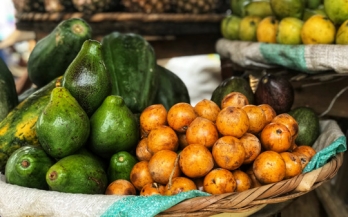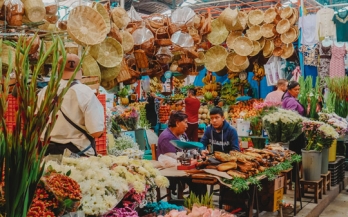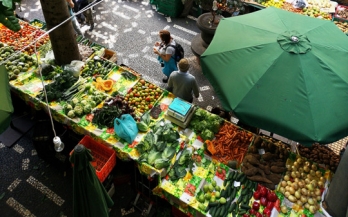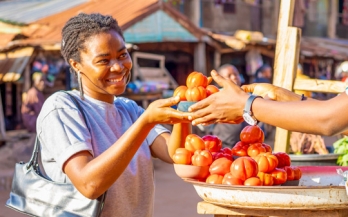The COVID-19 pandemic is a multiplier of vulnerability, compounding threats to food security and nutrition (FSN), while exposing weaknesses in food systems. This report summarises the current situation of Nigerian food systems amidst COVID-19 with a special emphasis on small and medium-sized enterprises (SMEs) and how nutritious foods value chains are changing.
The global food system is a major driver of environmental degradation, ill health, premature mortality and inequity. To enable resilient, affordable, safe and nutritious diets for the current and growing global population while restoring and safeguarding our environment, we need to urgently innovate food system solutions that work for both people and planet.
A survey of food system SMEs in 14 countries, aiming to assess the impacts of the COVID-19 pandemic and associated control measures on their businesses and their support needs, was undertaken by GAIN and partners, including the Scaling Up Nutrition (SUN) Business Network (co-convened by the World Food Programme (WFP)). This survey took place in October/November 2020, following one in May 2020.
During program startup in Nigeria, EatSafe identified and gauged stakeholders’ interest and influence in food safety. EatSafe then convened a series of events to engage these stakeholders at local and national levels prior to intervention implementation.
The COVID-19 pandemic is a multiplier of vulnerability, compounding threats to food security and nutrition (FSN), while exposing weaknesses in food systems. This report summarises the current situation of Kenyan food systems amidst COVID-19 with a special emphasis on small and medium-sized enterprises (SMEs) and how nutritious foods value chains are changing.
EatSafe evaluated the regulatory and policy landscape for food safety in Nigeria at the national and regional levels, which included a stakeholder mapping exercise and resulted in recommendations for strengthening implementation.
This report looks at existing conceptual frameworks for food systems with a new lens that links food safety and nutrition and explores how such a perspective can be used to improve policy and programming.
The Food Systems Dashboard brings together extant data from public and private sources to help decision makers understand their food systems, identify their levers of change and decide which ones need to be pulled. The Global Burden of Disease study showed that unhealthy diets contribute to 11 million deaths per year.
How should the CGIAR's research programme be focused to make it as impactful as possible given the changes being faced by the world's population over the next 10 years? This viewpoint suggests a firm emphasis on research needed to unlock the potential of food systems to deliver improved nutrition, environmental sustainability and stronger livelihoods, with a focus on the tradeoffs and synergies therein.
This document describes the work GAIN has been doing on demand creation, mainly under the Making
Markets Work programme. The purpose is to inform interested readers about the approach and progress made
in the last three and a half years.










